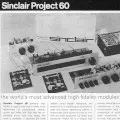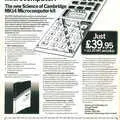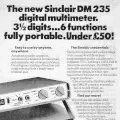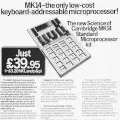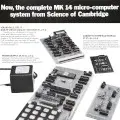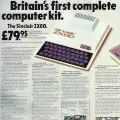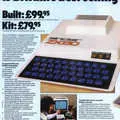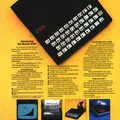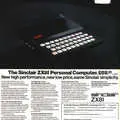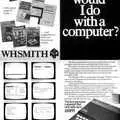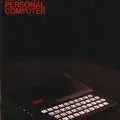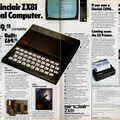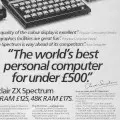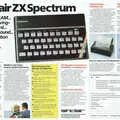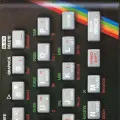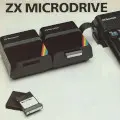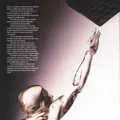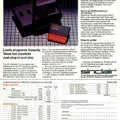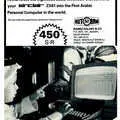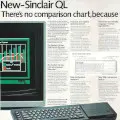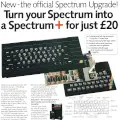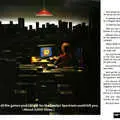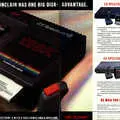
Sinclair Advert - November 1981
From Sales Leaflet
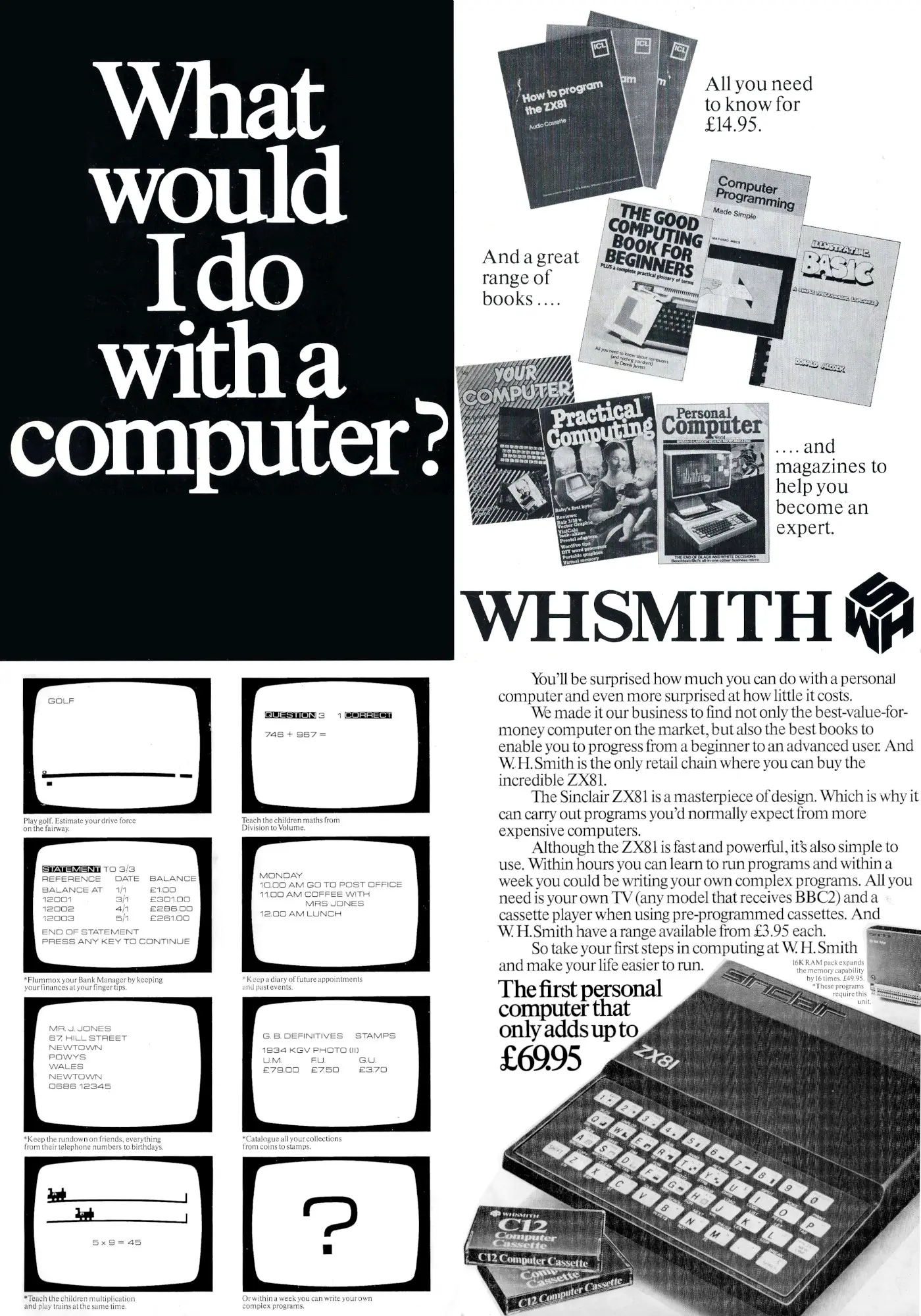
WHSmith: What Would I Do With a Computer?
This advert is a small A5 4-page booklet produced by UK newsagent chain WHSmith and demonstrates nicely how such regular high-street shops were very much part of the early home computer revolution.
Sinclair - once it progressed beyond its initial mail-order-only policy - and Commodore were both companies which eschewed the traditional sales channel of dedicated dealerships in favour of user-friendly locations like department stores, toy shops and mainstream electrical dealers such as Lasky's, Curry's and Rumbelows.
It also shows WHSmith in a bit of vertical integration, with the company also offering a range of computer magazines as well as specialist books on computer programming. Pre-recorded software was also available for £3.95, which is about £17 in 2026 money.
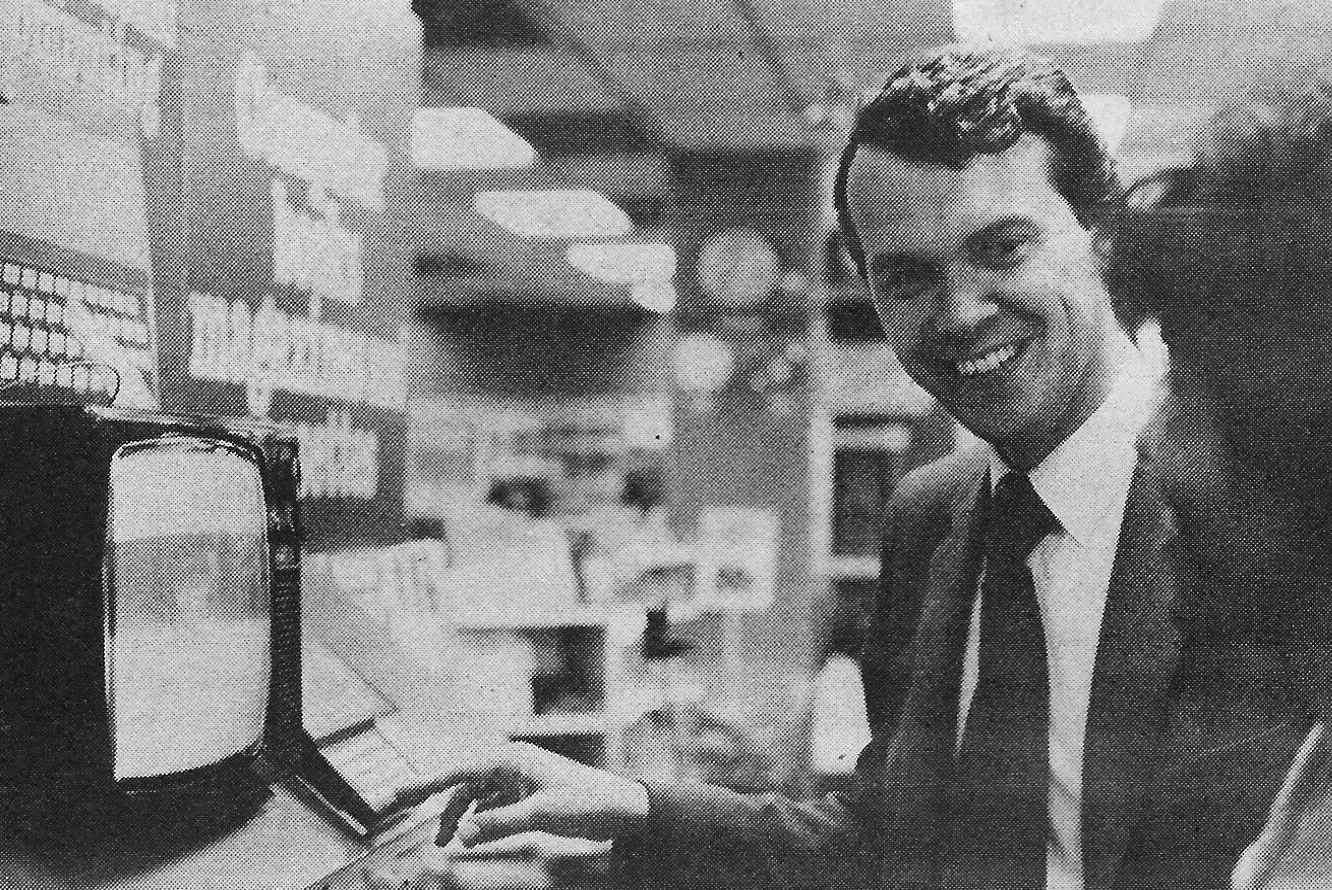
John Rowland of WHSmith, © Popular Computing Weekly, 15th July 1982In 1980, Smiths had conducted a survey of computer magazine sales, and following that started putting computer magazines and books together in its shops, sometimes with a PET demo going on as well.
Towards the end of 1981, it signed an initial 12-month agreement to sell Sinclair's ZX81 in 112 of its shops, in a new department to be called "Computer Know-How".
It had decided to approach Sinclair following the success of its computer books and magazine sales, with the company shifting around 500,000 magazines alone by the end of 1981.
Smith's computer-related book sales had started as a test in the Brent Cross Shopping Centre in London. Market development manager John Rowland said of the success of the original trial that:
"We thought that we were at the beginning of something important, and that with suitable hardware, we'd have a combination which would prove successful".
It decided to approach Sinclair Research for the rights to sell the ZX81 because it saw Sinclair as the only company with "both a proven product available in the right quantities, and a proven sales record".
Clive Sinclair meanwhile said of the deal - which included Sinclair giving Smith's ZX81s special serial numbers so that broken mail-order micros couldn't be taken into branches for repair under guarantee - that:
"Both parties view the agreement as an experiment. We accepted Smith's approach because they've clearly researched the subject carefully, and take the new operation very seriously"[1].
By September 1982 the number of Smith's outlets had increased to 120, and it was also considering widening that to include any shop in a population centre of more than 60,000 people.
"it's not like a garden chair. You cannot just look at it and understand completely"
However, the company was still only selling the ZX81, as Rowland explained:
"When you are starting out in a new product field it is important to start with something nice and simple. The ZX81 has some super features for beginners".
By summer, more than 400 of its staff had been sent on a full-time residential microcomputer training course, because as Rowland suggested:
"it's not like a garden chair. You cannot just look at it and understand completely".
Meanwhile, whilst "the ZX81's return per square foot of store area means that it more than earns its keep on the shelves", Smiths was also progressing with a plan to follow up with the VIC-20[2].
By August 1983, Smiths had the largest share of the retail market for micros at 18%, whilst another high-street name, Boots the Chemist, which had started retailing computers at about the same time, was selling the less-popular TI-99/4 micro in six of its city-centre branches, and so was bringing up the rear with only 2%.
Asked whether he thought it odd that a high-street chemist should be selling computers, Boots director Aubury Ridley-Thompson pointed out that the company was the first multiple outlet chain to sell pocket calculators back in 1971, and it was also well-established as a retailer of audio equipment.
Market-research outfit Mintel predicted that 1.25 million micros would be sold in the UK during 1983, in a market worth about £200 million (around £880 million in 2026 terms)[3].
A chunk of WHSmith's business (and no doubt why they were advertising on behalf of Sinclair) may have been thanks to the exclusive deal it had to sell the ZX81, at least until late 1982 after the Spectrum had been launched and Sinclair started selling the ZX81 through other retailers including John Menzies, Wigfalls and Rank Xerox[4].
Thanks to this exclusive deal, Smiths was, at one point, selling training-software cassettes for the ZX81 as fast as they could be made.
The company placed an order for 100,000 cassettes with a slightly unexpected source - systems behemoth ICL Computers.
ICL's training division had written the software and was managing to produce tapes that were more reliable and which could be read better by the ZX81 than tapes the machine itself was capable of saving[5].
In the late summer of 1983, WH Smith even dabbled in hardware, when it launched its CPD-8300 computer-compatible cassette recorder, compatible with any micro that used regular microphone and earphone sockets - meaning most micros except those from Commodore[6].
The player came with save and load level adjustment, as some machines like the BBC Micro were known for overwhelming the recording circuits of some tape players, although a DIY hack to wire in a 5K limiting resistor was available to anyone with a soldering iron[7]. The player was available from 27th September 1983.

WH Smith at Waterloo Station, September 1987WHSmith was still very much in the micro retail game at the end of 1984, where it was reported to be launching a credit-plan scheme.
This was available for purchases between £400 to £2,000 (£1,680 - £8,440 in 2026) including a 10% deposit, at an APR of around 27% - about the same as credit cards of the day.
The price that Smith's was aiming at was telling, as the home market was reaching saturation and micros were on the cusp of moving "up-market" towards better home and small business machines.
John Rowland, WHSmith's merchandise controller for personal computers said of the move into finance that:
"this will help our more serious customers with their purchases, particularly with Christmas approaching"[8].
However, it was no longer interested in the humble ZX81 it had started out with, sales of which had been wound down in the late summer of 1983.
HMV took up the slack when it announced that it was starting to sell computer software from the end of September of the same year, initially at its Oxford Street and Glasgow shops.
A range of 70 to 80 titles was expected to be available for machines including the ZX81, ZX Spectrum, VIC-20, Dragon 32, Oric, BBC and Atari's 400 and 800 models. The company would even order a title in if it was out of stock[9].
At about the same time, WHSmith opened up a branch of its Computer Shop at Waterloo Station, an opening that was accompanied by a lawsuit from IBM.
This was because it was selling the Advance 86, an IBM clone built by Ferranti and which IBM considered had a BIOS that was uncannily similar to IBM's own.
IBM had written to both WHSmith and Ferranti only a week before the shop opened, effectively saying "stop it". Big Blue's claim stated that it had:
"rigorously examined the routines and found that they were 90% identical with our own. Even the known errors in the BIOS have been reproduced identically"[10].
Ferranti, meanwhile, was suggesting that a new version of the software would be available soon, although its timescale of a replacement within three weeks seemed a bit optimistic.
The company also announced that it was taking over the distribution of the Advance, a move no doubt engineered to soothe dealers worried about the impact of legal action by IBM.
Date created: 29 November 2012
Last updated: 15 November 2025
Hint: use left and right cursor keys to navigate between adverts.
Sources
Text and otherwise-uncredited photos © nosher.net 2026. Dollar/GBP conversions, where used, assume $1.50 to £1. "Now" prices are calculated dynamically using average RPI per year.
